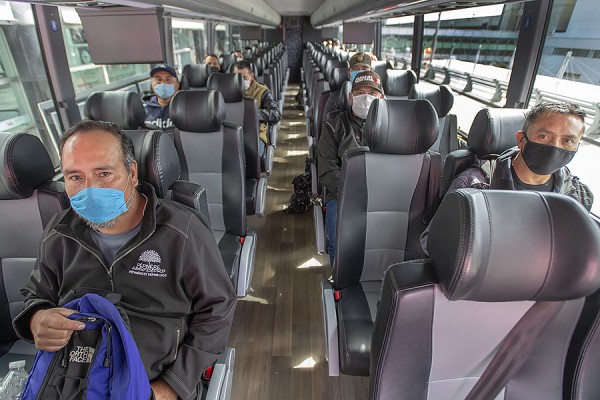 Migrant workers from Mexico maintain social distancing as they wait to be transported to farms after arriving in Canada.
Migrant workers from Mexico maintain social distancing as they wait to be transported to farms after arriving in Canada.
Can Canada extend adequate protections from COVID-19 to the temporary migrant workers it imports to jobs in the agricultural sector?
UWindsor sociology professors Tanya Basok and Glynis George address this question in an article published April 26 in the Conversation, which shares news and views from the academic and research community.
Shared living quarters means the migrants will be hard-pressed to maintain the social distance required to contain the spread of COVID-19, they write: “Their housing conditions constitute the greatest threat to these workers.”
The article notes that illegal boarding houses have been a concern for Essex County municipalities with a concentration of greenhouse operations, including Leamington and Kingsville, and calls for these housing arrangements to be rethought.
“Migrant workers produce, harvest, slaughter, and process the food we eat…. Just like Canadian citizens, migrant workers need ongoing education in social distancing, illness and mental wellness in these difficult times.”
Read the entire piece, “Migrant workers face further social isolation and mental health challenges during coronavirus pandemic,” in the Conversation.
